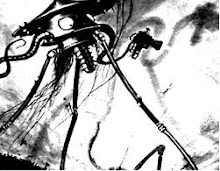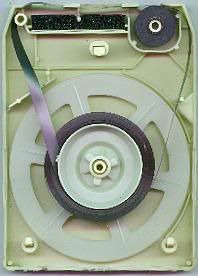Google Ordered to Hand Over YouTube Records to Viacom
BBC reported last week, as well as The New York Times and The Wall Street Journal (today), that media conglomerate Viacom obtained a court order to receive12 terabytes of data from Google regarding video views on YouTube. The data includes the usernames and IP addresses of viewers, how many videos they have watched and how many times those videos were watched. That's a lot of private information Viacom has obtained.
I'm currently reading Lawrence Lessig's Code: Version 2.0, and I feel that the arguments in that book apply here. The current debate surrounds the issue of privacy, and whether or not a constitutional right has been violated. I think Lessig would say that this we currently have a choice about what values we want to protect in cyberspace. That is to say, the Constitution may very well have little guidance on this conflict because the conflict is not addressed.
I'd really hope that the side of privacy wins here. From my perspective, copyright law was no guarantee of perfect control over copies of content; however, as Lessig argues in Code, the internet can provide content providers with a more prefect control than was previously available. With the undoubtedly meticulous records of YouTube users stored by Google, there's a gold mine of information for Viacom to police the use of its content.
Another question remains of whether or not we want to decide on the value of protection over the value of accessibility, as well as the value of privacy. The privacy issue should concern us all -- in effect, Viacom has been given the viewing records of individual users to use for a legal case. If users are aware that their viewing habits could be monitored, could that potentially dampen said viewing habits? To make a rough analogy -- imagine that Random House, Inc. had obtained a court order requiring the Library of Congress, Harvard University, or the Boston Public Library to turn over records of all individuals' reading habits, including which books were checked out, the number of books checked out, and the number of times each book was checked out. Ultimately, how is this scenario much different from Viacom v. Google?
YouTube is digital, and therefore, presents circumstances that were not possible in a real space library. A library has physical limitations which make it impractical that any books held within could be checked out and read millions, let alone billions, of times within a year. Moreover, each book can only be checked out by one person at a time. Because of these physical limitations, there is little threat to the commercial publishing industry from libraries.
But now imagine that the library is entirely digital. Now many users can view books at the same time, thus increasing the number of views in the same time frame. Being digital, it is now easier for users to create derivative works by cutting up the digital pages of books and splicing them together, or even adding original content to the existing works, to create something different. I would argue that our copyright law, and the Constitution in general, do not address this issue specifically. As Lessig argues, it is up to us to make the choice about which values from real space we want to preserve in cyberspace.
I come down in favor of less restrictive copyright and a preservation of privacy. I think the culture of YouTube and the ability of people to share and create existing and new works is an impressive testament to the power of the internet as a medium. I believe that such sharing can only facilitate more culture, and we will be all the better for it.



No comments:
Post a Comment